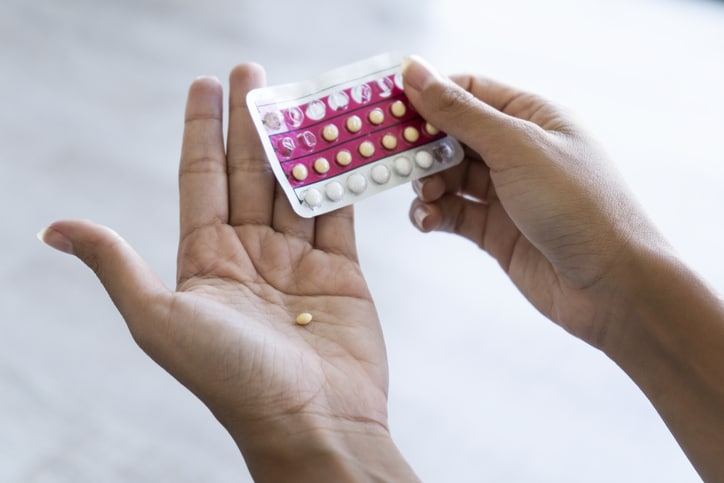Egg Donor Medications
Considering to become an Egg Donor, is a big decision and you likely have many questions about the medications used in the egg donation process. You may have already heard a little bit about the egg donor medications; the fact that some of them are self-injectable, or that there are some possible side effects which you may expect. Here, we are not only listing the medications you take when donating eggs with Pinnacle Egg Bank, but also explaining all you may want to know about them; why you take them, what do they do and what are the possible side effects that you may or may not experience during your journey. Please keep in mind that each egg donor will have their own medication schedule and may respond differently to an individual egg donation medications protocol. The side effects of egg donation medications are mainly mild and short term. There are effective ways of managing the side effects of egg donor medication that we discuss in our blog. Your assigned nurse will guide you on how to self-administer medications and will be there throughout the whole process to support you as well as answer any questions or concerns you may have along the way.
Birth Control Pills
We often begin the process of egg donation by starting the egg donor on the birth control pills. The hormones (synthetic progesterone and estrogen) in the birth control pills suppress the ovaries and keep the resting egg follicles quiet (inactive). The very low dose of hormones in the pills lowers the hypothalamus’ (the part in the brain that is responsible for, among others, releasing hormones) production of GnRH or gonadotropin-releasing hormone.
The pituitary (near the hypothalamus) depends on GnRH to release FSH/LH, the gonadotropins that tell the ovary to recruit and release an egg. Thanks to the birth control pills we can start the ovarian stimulation process with a ‘clean slate’ and wake up the follicles with medication when ready for the cycle.
Another role that birth control pills play in egg donor medications protocols is synchronizing the cycles of egg donors and recipients (intended mothers) for fresh egg donation cycle; the timing of the menses can be changed to coincide with the specific week and to match the donor and recipient. The side effects of birth control pills are usually minimal.

Possible Side Effects Of Birth Control Pills:
These side effects, if any, are usually mild and transient. The side effects should stop once you stop taking the pills.
Breast soreness
Moodiness
Nausea
Increased appetite
Oily skin
Acne
Spotting at unexpected times
Changes in libido
Fatigue
Swelling
Headaches
Thromboembolism (blood clot – a rare but serious side effect)
Follicle Stimulating Hormones (FSH) for Egg Donation
Follicle Stimulating Hormone (Gonadotropins: Gonal F, Follistim, Menopur) is a hormone that the pituitary gland produces in order to mature eggs in the natural menstrual cycle. As an egg donor medication, its use is to grow more follicles that in turn will yield more mature eggs ready for egg retrieval. Similar to the other egg donation medications we will review, this medicine is self-administered by an injection. In a number of brands of this medication we use for our egg donors, the FSH is administered via a pen with a tiny needle, making it a much more comfortable experience when injecting. FSH injections are taken once a day for around 10 days, but – as with all other medications used in egg donation process – the protocol is individually prescribed and will vary from person to person.

Some Possible Short Term Side Effects of FSH May Include:
Headache
Moodiness
Fatigue
Bloating
Diarrhea
Flu-like symptoms
Nausea
Passing gas
Acne
Breast pain
Vaginal bleeding
Dizziness
Vaginal discharge
Sleepiness
Nervousness
Light-headedness
Loss of appetite
Fast heart rate
Itching
Thirst
Ovarian hyperstimulation syndrome (OHSS)
Ovarian hyperstimulation syndrome (OHSS) is extremely rare and happens in approximately 1% of IVF treatments. OHSS happens when the body over-responds to the medication; this causes swelling as fluid leaks out of the ovaries and collects in the abdomen. The condition can cause pain and bloating. In rare cases, individuals may need to go to the hospital to receive treatment. You will need to call your doctor immediately if you are experiencing any of the possible symptoms of OHSS as this condition can be life-threatening. If you or someone you know is exhibiting symptoms – go straight to the ER or call 911.

Rare Possible Side Effect: OHSS
Bloating
Pain
Nausea
Swelling
Decreased urine output
Dizziness
If OHSS becomes severe, some women may begin to have respiratory issues (shortness of breath), severe pain, and vomiting.
So how do we prevent OHSS when looking after our egg donors and dosing the medications? While taking the stimulation medications, we ask you to come into the clinic every other day, sometimes every day so we can check and adjust medication dosages and see what side effects, if any, you may be experiencing. Careful monitoring of the injectable drugs is the first and most important way of preventing OHSS. Your doctor and nurses will work together to take care of you and help monitor the process.
GnRH Antagonists for Egg Donation
Gonadotropin-releasing hormone antagonist (Ganirelix Acetate, Cetrotide) is a synthetic drug similar to GnRH, which blocks its activity. It is used to treat women undergoing fertility treatment. It is also an important part of the egg donors medication protocol because it prevents an early release of luteinizing hormone (LH) and premature ovulation (egg release) in women taking follicle-stimulating hormone (FSH) when preparing for in-vitro fertilization or egg donation. FSH stimulates the ovary to select a follicle that houses the egg whereas LH causes egg release from the ovary.
This egg donation medication is self-administered by injection and your assigned nurse will explain your protocol and teach you how to inject into the fatty tissue of your abdomen. You may experience some common, mild side effects associated with hormonal therapy.

Possible Side Effects of GnRH May Include:
Abdominal pain (gastrointestinal)
Headache
Vaginal bleeding
Injection site reaction
Nausea
Ovarian Hyperstimulation Syndrome (OHSS – please see above)
Human Chorionic Gonadotropin (hCG)
hCG (‘trigger shot’: Ovidrel, Lupron hCG) – this hormone is produced in the placenta and elevated levels of this hormone may indicate pregnancy. In egg donation, as well as IVF, this hormone is used as a ‘trigger shot’ to mature eggs so they can be retrieved. The timing of the hCG injection is closely managed and is given when the follicles reach the desired size. The egg retrieval will take place 36 hours after the trigger shot administration and must be accurately timed – if the eggs are not retrieved in time, they will be lost with the onset of menses. The side effects of this medication used in the egg donation process are mainly mild and short term.

Possible Side Effects of hCG for Egg Donation May Include:
Nausea
Vomiting
Mild abdominal pain/swelling
Headache
Restlessness
Irritability
Water weight gain
Depression
Breast tenderness/swelling
Injection site reaction
Ready to Start Your Egg Donation Journey or Have Questions?
We’re here for you! Pinnacle Egg Bank we work with our donors on an individual basis and will monitor you very closely throughout your egg donation process, adjusting the egg donor medications as required. From the very start of your egg donation journey, we will assign you a nurse who will guide and support you every step of the way. If you have any questions or would like to find out more about donating eggs, or the medications used in the egg donation process, please contact us online or call 424-385-0100.

